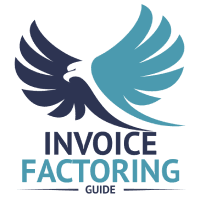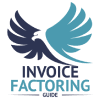
Anyone who has ever taken out a loan and watched their credit score plummet knows all too well just how painful the experience can be. Typically, the hard credit check costs your overall score a couple of points, though the shift in your debt ratio can reduce it a bit more. While this may not make a huge difference, it can be enough to signal you’re a high-risk borrower, which comes with its own set of implications. The good news is that you can breathe easy if you’re worried this will occur when leveraging invoice factoring. It’s a whole different type of funding that doesn’t come with the same side-effects as loans. For businesses looking for flexible funding without impacting their credit score, a factoring line of credit provides an ideal solution, offering access to working capital without the debt burden of traditional loans. Give us a few minutes, and we’ll walk you through what sets it apart and how invoice factoring affects your credit score.
How Your Business Credit Score Works
A business credit score is a measure used by lenders and suppliers to evaluate the creditworthiness of a business. Much like personal credit scores, these scores can influence a company’s ability to borrow money, secure favorable payment terms, and even negotiate lower insurance premiums.
Business credit scores usually fall between 0 and 100, where higher ratings reflect increased credit reliability. These scores are calculated using several factors, including:
- Payment History: How promptly the business pays its bills.
- Credit Utilization Ratio: The amount of available credit the business is using.
- Length of Credit History: How long the business has had active credit accounts.
- Company Size: This can influence the perceived stability of the business.
- Public Records: Bankruptcies, liens, and judgments.
Major business credit reporting agencies include Dun & Bradstreet, Experian Business, and Equifax Business. Each agency has its own methodology for calculating scores.
Good Credit vs. Bad Credit
Good Credit typically refers to scores higher than 75, indicating that the business is a low risk for lenders and suppliers. These businesses often enjoy better interest rates, higher lines of credit, and more favorable terms from suppliers.
Bad Credit is generally considered scores below 50. Businesses with bad credit are seen as high-risk and may have difficulty securing financing. They are often subjected to higher interest rates and less favorable terms, which can impact operational flexibility.
Challenges of Business Finance with Bad Credit
Businesses with a poor credit rating face several challenges, including:
- Limited Access to Financing: Many lenders hesitate to offer loans to companies with low credit scores due to the increased risk of default. Because of this, little more than half of small businesses that apply for traditional loans have their needs met in full, per the Small Business Credit Survey.
- Higher Costs: Loans that are available often come at a higher cost, with increased interest rates and fees.
- Supplier Terms: Suppliers may demand upfront payments or shorter payment terms, impacting cash flow.
- Expansion Challenges: Lack of funds can limit growth opportunities, such as expanding operations or investing in new technologies.
Navigating business finance with a poor credit score requires careful financial management and strategic planning to improve creditworthiness over time. For instance, businesses can focus on improving their payment habits, reducing credit utilization, and resolving public record filings where feasible.
How Invoice Factoring Works
Invoice factoring is a financial agreement in which a business sells its accounts receivable or invoices to a third party called a factor at a discount. This arrangement provides the company with immediate cash flow, which can be crucial for operations, especially for small businesses struggling with delayed customer payments.
The Invoice Factoring Process
Factoring is a straightforward process that usually involves the following steps:
- Invoice Creation and Sale: The business issues invoices to its customers for products or services it has delivered.
- Initial Cash Advance: The factoring company provides the business with an immediate cash advance, typically 60 to 95 percent of the total invoice value, depending on the agreement and the perceived risk associated with the invoice.
- Customer Payment: The factor takes on the responsibility of collecting the payments from the customers. This aspect can be beneficial to businesses as it outsources the credit control and collection process, allowing them to focus on core activities.
- Receiving the Balance: Once the customer pays the invoice, the factor remits the balance of the invoice amount to the business minus a nominal factoring fee. This fee is generally a percentage of the invoice and can range based on the transaction’s specifics, such as the customer’s creditworthiness and the invoice size.
Benefits of Invoice Factoring
Factoring comes with many benefits beyond how it impacts your business credit score.
- Improved Cash Flow: Factoring provides businesses with immediate working capital. You can use factoring income to pay expenses, purchase inventory, or invest in growth initiatives.
- Debt-Free Financing: Unlike loans, factoring does not create debt on the balance sheet, which can help maintain healthier financial ratios.
- Credit Management and Collection Services: Factoring companies often handle collections, saving businesses time and potentially reducing the cost associated with credit management. Some provide invoice preparation and other services, too.
- Flexibility: Factoring agreements can be structured on a case-by-case basis, allowing businesses to factor only the invoices they choose when they need immediate cash.
Invoice Factoring vs. Invoice Financing
Invoice factoring refers to selling your outstanding invoices to a third party. The factor then advances a significant portion of the invoice value to you and takes on the responsibility of collecting customer payments.
Key Features of Invoice Factoring
- Immediate Cash: You receive an advance, typically 60 to 95 percent of the invoice amount.
- Credit Control: The factor manages the credit control and debt collection processes.
- Customer Interaction: Customers make their payments directly to the factor, meaning they are aware of the factoring arrangement.
Invoice financing, also known as accounts receivable financing, is a loan-like arrangement where a business uses its invoices as collateral to get cash advances from invoice finance lenders. In other words, they borrow against invoices. Unlike factoring, the company retains control over the sales ledgers and continues to handle customer communications and collections.
Key Features of Invoice Financing
- Cash Advance: Similar to factoring, businesses receive an advance, which can be up to 90 percent of the invoice value.
- Control Over Collections: The business remains responsible for collecting payments from customers.
- Confidentiality: Customers are typically unaware of the financing arrangement since they continue to pay the business directly. It’s worth noting that some invoice factoring companies offer a similar solution. Known as non-notification factoring, the factoring company limits its contact with the customers and appears more like an extension of your business in customer-facing interactions.
How Invoice Factoring Affects Your Business Credit Score

Typically, factoring companies do not report to credit bureaus unless there is an adverse incident, such as a default. This is somewhat uncommon because factors perform credit checks before factoring invoices and work with you to address non-payment. However, businesses that want an additional layer of security can opt for non-recourse factoring.
Because of this, the act of factoring itself does not directly affect your business credit score unless it alleviates financial stress that might otherwise lead to negative entries.
How Factoring Improves Your Credit Score
- Improved Payment Timeliness: By providing immediate cash flow, factoring enables businesses to pay their bills on time or even early. Consistent, timely payments are vital to building and maintaining a solid credit score.
- Reduced Credit Utilization: With faster access to cash, businesses can avoid maxing out their credit lines. Lower credit utilization ratios are viewed positively by credit scoring models and can lead to an improved credit score.
- Avoidance of Delinquencies and Judgments: The immediate capital from factoring can help businesses avoid delinquencies on their other financial obligations. Preventing delinquencies and judgments is crucial for maintaining a good credit score.
How Your Credit Score Impacts Factoring
If you have bad credit, invoice factoring can still work for you. Your credit score doesn’t significantly impact whether you qualify for factoring. In fact, people often discover invoice factoring as a solution when they’re specifically looking for ways to get money with bad credit. This is because factors care more about the creditworthiness of your customers than your creditworthiness.
As a result, not all factoring companies will review your credit report before approving your account. However, some will use your credit score to help determine advance rates, determine an appropriate reserve, or as part of the rate-setting process.
FAQs About Invoice Factoring and Business Credit Scores
Before we wrap up, let’s quickly review some frequently asked questions on the topic.
What is a Bad Credit Rating?
A bad credit rating indicates a business’s lower likelihood to repay debt as agreed. In business credit terms, a score below 50 on a scale of 0 to 100 is typically considered bad. This rating can result from late payments, high credit utilization, or public records like bankruptcies. A bad credit rating can restrict a business’s ability to secure financing, result in higher interest rates, and affect terms with suppliers.
How Can I Get Business Funding with No Credit Check?

Getting business funding with no credit check can be difficult, but there are a few options available:
- Revenue-Based Financing: Lenders provide funds based on the company’s monthly sales and cash flow instead of credit history.
- Merchant Cash Advances: An advance is given based on future credit card sales.
- Trade Credit: Suppliers provide goods or services upfront with payment deferred to a later date.
- Microloans: Some non-profit lenders offer small loans with minimal credit requirements, focusing on the business model and personal commitment.
- Invoice Factoring: Some factoring companies will provide services without performing a credit check on your business. If checked, it isn’t typically a major determining factor in approval.
These options typically do not require traditional credit checks, making them suitable for businesses with limited or no credit history.
Do Factoring Companies Do Credit Checks?
Factoring companies sometimes perform credit checks on the business selling the invoices and almost always perform one on the business’s customers. This is to assess the risk of the transaction, focusing primarily on the creditworthiness of the customers responsible for paying the invoices.
Can I Get Invoice Financing with No Credit Check?
It’s possible to get invoice factoring with no credit check, as factoring companies care more about the creditworthiness of your customers since they’re the ones responsible for paying the invoices. Invoice financing, however, is a loan that your business pays back. Because of this, credit checks are standard.
Can I Get Factoring Funding Help with Bad Credit?
Yes, you can use invoice factoring with bad credit. Factoring companies primarily evaluate the creditworthiness of your customers, not just your business credit score. If your customers have strong payment histories and credit scores, you can qualify for factoring even if your own credit is less favorable. This makes factoring a more accessible option for businesses with bad credit needing immediate cash flow.
Will the Factoring Company Appear on My Credit Report?
No, the factoring company typically does not appear on your credit report. Factoring is not a loan, so it does not create debt on your balance sheet, and factoring companies generally do not report to credit bureaus.
What is the Impact of Factoring on Credit Scores?
Factoring typically does not directly impact your business credit score since factoring companies usually do not report to credit bureaus. However, it can indirectly affect your credit score positively by improving cash flow, enabling more consistent payment of bills, and reducing credit utilization. These factors contribute to a healthier financial profile, enhancing your creditworthiness over time.
Boost Your Business Credit Score with Personalized Factoring Services
While factoring is typically thought of as a business funding solution, it can help you boost your credit score indirectly. Finding a company that offers custom factoring services is crucial to this process, as you’ll have more control over when and how you factor so that you can use it strategically. To learn more or get started, request a complimentary factoring quote.

About Invoice Factoring Guide
Related Articles
Get an instant funding estimate
Results are estimates based on the calculated rate and the total invoice amount provided.
Actual rates may vary.
Request a Factoring Rate Quote
PREFER TO TALK? Call us at 1-844-887-0300










